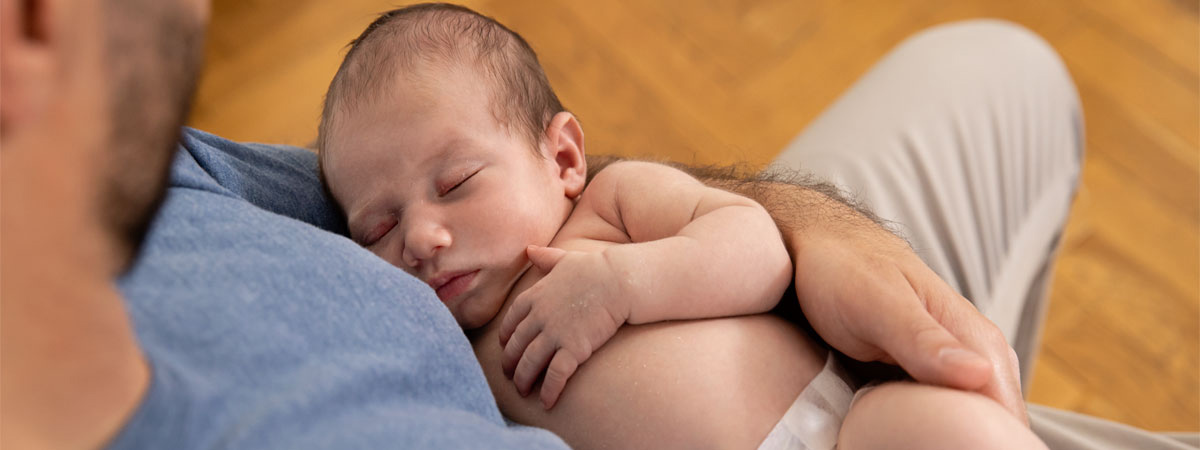Postpartum depression in a partner
Postpartum depression (PPD) actually doesn’t just affect the person who gave birth. The non-birthing parent can also become depressed after the baby is born.
Obviously, the physical experience of becoming a parent is very different for the parent who gave birth, but even if PPD is more common among mothers who gave birth, it can actually affect all parents. However, knowledge is limited when it comes to depression in the partner who did not give birth; this phenomenon has only recently started to be studied – mostly in fathers. Very little research has been conducted on mothers who did not give birth. Even if there is a dearth of research at this point, it’s good to know that all parents can be affected and it is just as important to seek help!
Depression can present differently in men
Men sometimes have different depression symptoms than women. Women tend to feel hopelessness and shame about not having the “energy” to be the parent they want to be. Men tend to trivialise and undervalue their emotional suffering. It is more common for men to use terms like “stress” than “depression,” while they become increasingly withdrawn. They may sometimes experience irritation rather than the typical low mood of depression. This is a broad generalisation, of course: we are all individuals and react to challenges differently, but it’s still helpful to know that the symptoms won’t necessarily be expressed in the same way. If both partners in a relationship experience depression after the baby’s arrival, it is especially important to remember that how your emotional state presents can often be very different.When it comes to depression, men also tend to wait longer to seek help – or they might not get any help at all. Success in detecting depression in the non-birthing parent varies from place to place. It is also quite common for partners to not really dare to speak up and say how they’re doing in these new circumstances.
Why do fathers and non-birthing mothers sometimes become depressed?
We don’t know exactly why co-parents get depression after the baby is born, but the risk of being affected is higher if you have had depression in the past. It is also higher if your partner has depression, because of course you impact one another within your relationship. It can have a big impact on you if you feel helpless and don’t know how to support the person you love.
When you’re both feeling low, it’s also harder to help and relieve one another. So it is especially important to seek professional help while also assessing your personal network to see what help you can get with the baby and practical chores at home.
How do you get healthy?
Talking to the other parent, who likely senses that something is off, is often a good first step because depression is a very heavy burden to bear on your own. Putting your feelings into words isn’t just temporarily pleasant – it also tends to be a big part of the healing process.
If your partner is depressed, however, you will need to get help from someone else. Talk therapy has been shown to work well and it’s also a good option for you if your partner is feeling low, just to maintain your own health! Joining various parenting groups has also been shown to be effective, because it gives you the chance to talk to others in a similar situation.
And it’s important to try to take care of yourself: get enough sleep, eat well and stick to your daily routines, even if it isn’t always easy with your new family member at home. Working more is rarely a good solution; rather, you need to slow things down a notch. If needed, you can ask a doctor for help to go on sick leave for depression. Take a look at your network and what kind of support you can get to give yourself the chance to sleep. The earlier you address this, the faster you can get healthy.
Please note that all information above is based on Swedish recommendations.

